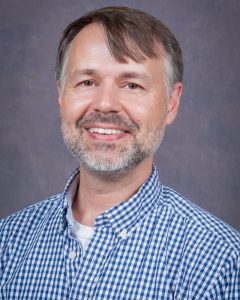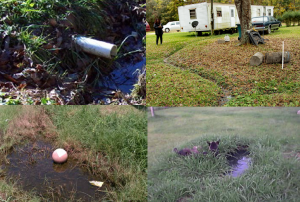The University of Alabama is spearheading a new approach to wastewater treatment in Alabama’s Black Belt region thanks to a grant from Columbia World Projects.
The initial investment of $710,000 establishes a pilot program that allows researchers to show that rural underserved areas can have healthier and more affordable access to wastewater management systems. With external funding matched by Columbia University, that amount will reach $14 million.
U.S. Rep. Terri Sewell, who represents Alabama’s 7th District, participated in a CWP forum on unequal opportunity about the need for better wastewater management. Her presentation helped the initiative’s decision to invest in the Black Belt project.
“I am grateful to Columbia World Projects for their investment in my district and in Alabama’s rural Black Belt to address the challenges posed by failing wastewater infrastructure,” Sewell said in a statement. “This project will build upon the progress my office has made over the years to secure vital federal funding for cost-effective rural sewer and wastewater systems.”
U.S. Sens. Richard Shelby and Doug Jones have also been supportive of this project. Representatives from both senators’ offices have been present at the meetings helping to launch this initiative.
Alabama’s Black Belt, a stretch of 17 counties named for the dark topsoil with dense clay underneath, is home to a population where 40 percent of the residents live below the poverty line. These rural locations don’t have access to centralized wastewater treatment like larger cities and towns with public utilities, so by law residents must treat their own wastewater on their property.
This is typically done using a septic system, consisting of a tank and a drainfield where wastewater infiltrates into the ground. However, in the Black Belt, the dense clay doesn’t allow the water to drain, so there are often puddles of disease-ridden and pathogen-filled wastewater that are easily accessible to children and pets. Some residences even resort to “straight pipe” systems, which send untreated wastewater directly from the home into nearby woods or other above-ground areas.

Leading UA’s efforts on the project is Dr. Mark Elliott from the College of Engineering. Elliott has spent the past few years researching ways to improve access to better sewage systems in lower-income rural areas of the state. The solution Elliott and his colleagues are testing for this project is a decentralized clustered system, which is between a large centralized sewer and expensive individual treatment systems.
“Like an individual on-site system, each home will have a septic tank to handle the solids,” said Elliott, an associate professor in the Department of Civil, Construction and Environmental Engineering. “However, instead of the liquids going to a trench where they go into the ground, they’re instead collected into a centralized treatment unit that then treats the wastewater.”
Collaborating with UA and Columbia University in the Black Belt wastewater project are the University of South Alabama; Auburn University; the University of North Carolina; the University of California, Irvine and a consortium of partners representing government agencies, community-based organizations and other stakeholders.
The initial testing site will be at the Auburn University School of Architecture’s Rural Studio in Newbern, Alabama. Once they establish a successful system in that area, they will file permits in order to branch out to other communities in need of these systems.
Elliott said their ultimate goal is to show that these systems work and to convince policymakers to invest more infrastructure money to solve what’s been considered an intractable problem all across the country.

“What we’re really hoping is we can establish proof of concept of affordability and successful management of these systems in low-density rural areas with many low-income households,” Elliott said. “If so, it will hopefully open up federal funds to address wastewater management in Alabama and beyond. The federal government subsidized heavily water and wastewater infrastructure for most of the U.S. population in the 20th century, but many poor, rural communities were left behind and didn’t get the development that the rest of the country experienced.”
For in-depth details about the grant and project, listen to Dr. Mark Elliott’s interview on the Alabama Water Institute Podcast. A brief video depiction of the decentralized clustered systems is also available on AWI’s YouTube channel.
